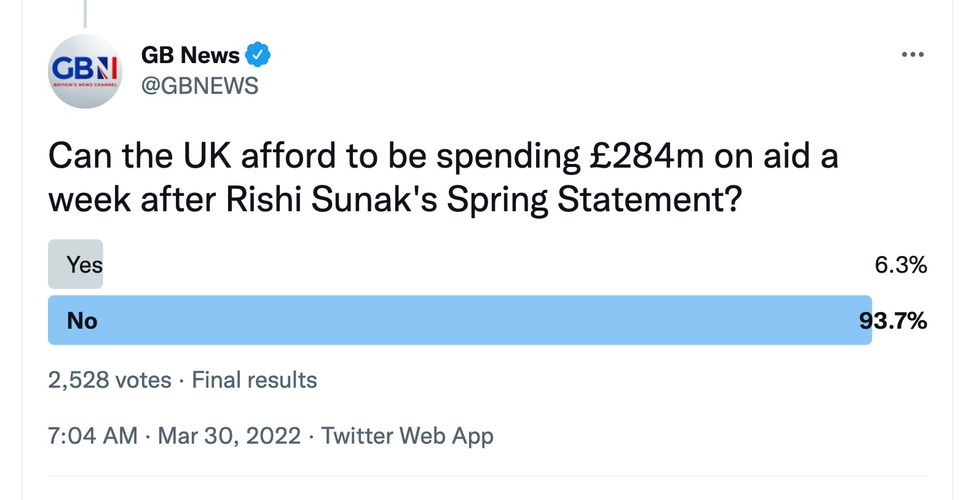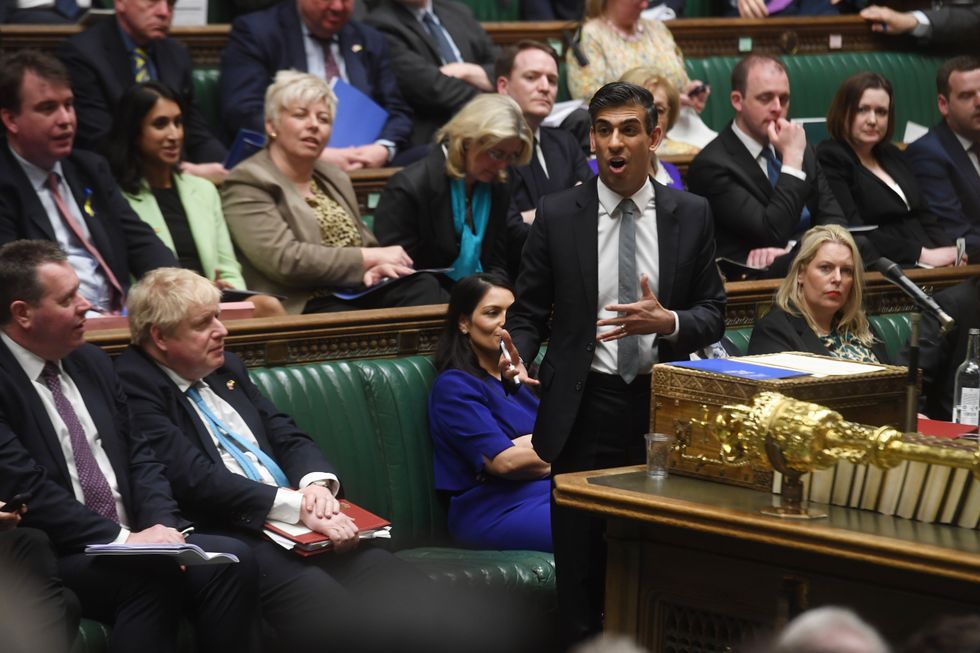Inflation is expected to hit a 40-year high, dramatically impacting Brits living standards the Office for Budget Responsibility say
Don't Miss
Most Read
Trending on GB News
Thousands have rejected the proposed £286million of emergency aid for Afghanistan amid the cost-of-living crisis.
93.7 percent of users reacting to a GB News poll said they think the UK can’t afford to send the multi-million package amid the country's bleak economic outlook, while, 6.3 percent of the 2528 people that voted on Twitter, agree with it.
The aid money aims to provide life-sustaining food, shelter and medical supplies for people in Afghanistan, in the wake of the Taliban takeover.
The UN estimates that around 10 million children across Afghanistan urgently need humanitarian assistance to survive, the Foreign, Commonwealth and Development Office (FCDO) said.
The UK will also be co-hosting a conference with the United Nations (UN) international pledging summit to help raise more than £3 billion.
The poll question and results posted on GB News' social media
@GBNEWS / Twitter
Foreign Secretary Liz Truss said: “The UK is rallying countries in support of the Afghan people and helping lead the way in providing life-sustaining food, shelter and medical supplies.
“Together with allies and partners, we can do more and will do more to help Afghanistan.”
FCDO minister Lord Ahmad of Wimbledon said: “The people of Afghanistan deserve the right not only to survive, but to thrive and live in freedom. Our humanitarian aid supports the most vulnerable, including girls and women as well as marginalised religious minorities.
“I’m proud the UK is co-hosting this conference with the United Nations, Qatar and Germany, to strengthen the international response which has already saved lives this winter.”
The poll results come as Prime Minister Boris Johnson and Rishi Sunak Chancellor of the Exchequer face mounting pressure to alleviate the cost-of-living crisis.
Chancellor of the Exchequer Rishi Sunak delivering his Spring Statement in the House of Commons
UK Parliament/Jessica Taylor
The Office for Budget Responsibility has warned that inflation, which is expected to hit a 40-year high later this year, will lead to the biggest fall in living standards in any single year since records began in the mid-1950s.
They also said the price of fuel could rise by six percent next year once the 5p-a-litre cut in fuel duty comes to an end next year.
The Chancellor outlined a set of measures to reduce Brits bills in his Spring Statement, but received widespread backlash, as many believe they do not go far enough.
Labour's Rachel Reeves said he is "making the cost-of-living crisis worse, not better".
She added: “Inflation is at its highest level for 30 years and rising. Energy prices at record highs. People are worried sick.
“For all his words, it is clear that the Chancellor does not understand the scale of the challenge. He talks about providing security for working families, but his choices are making the cost-of-living crisis worse, not better."
Yesterday, Downing Street acknowledged there is no way to “fully mitigate” the impact of rising inflation without either major tax hikes or cuts to spending.










